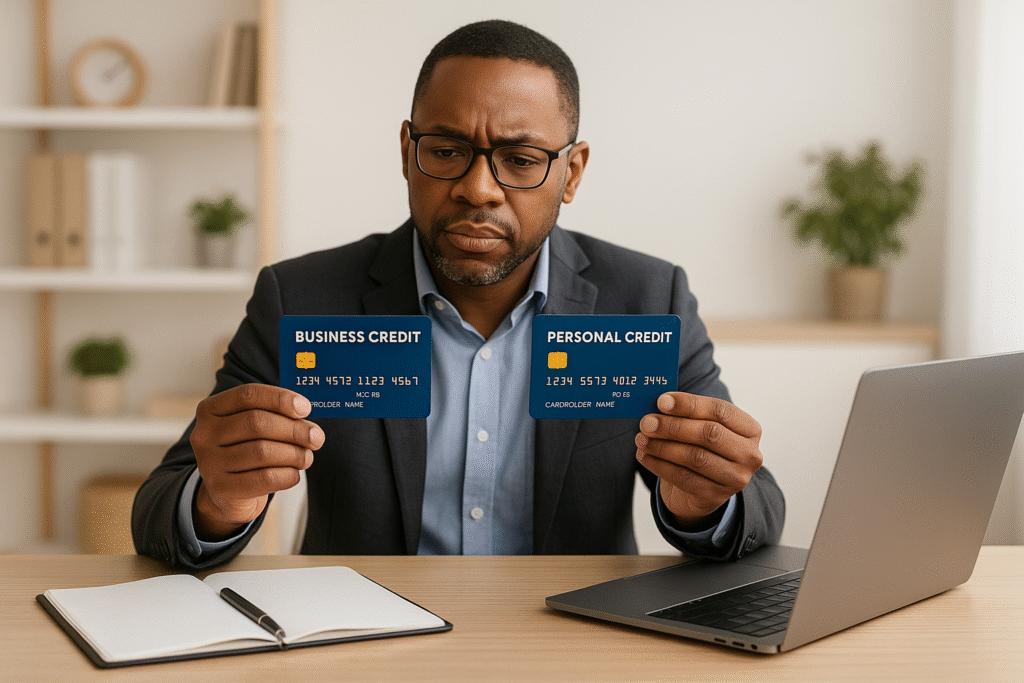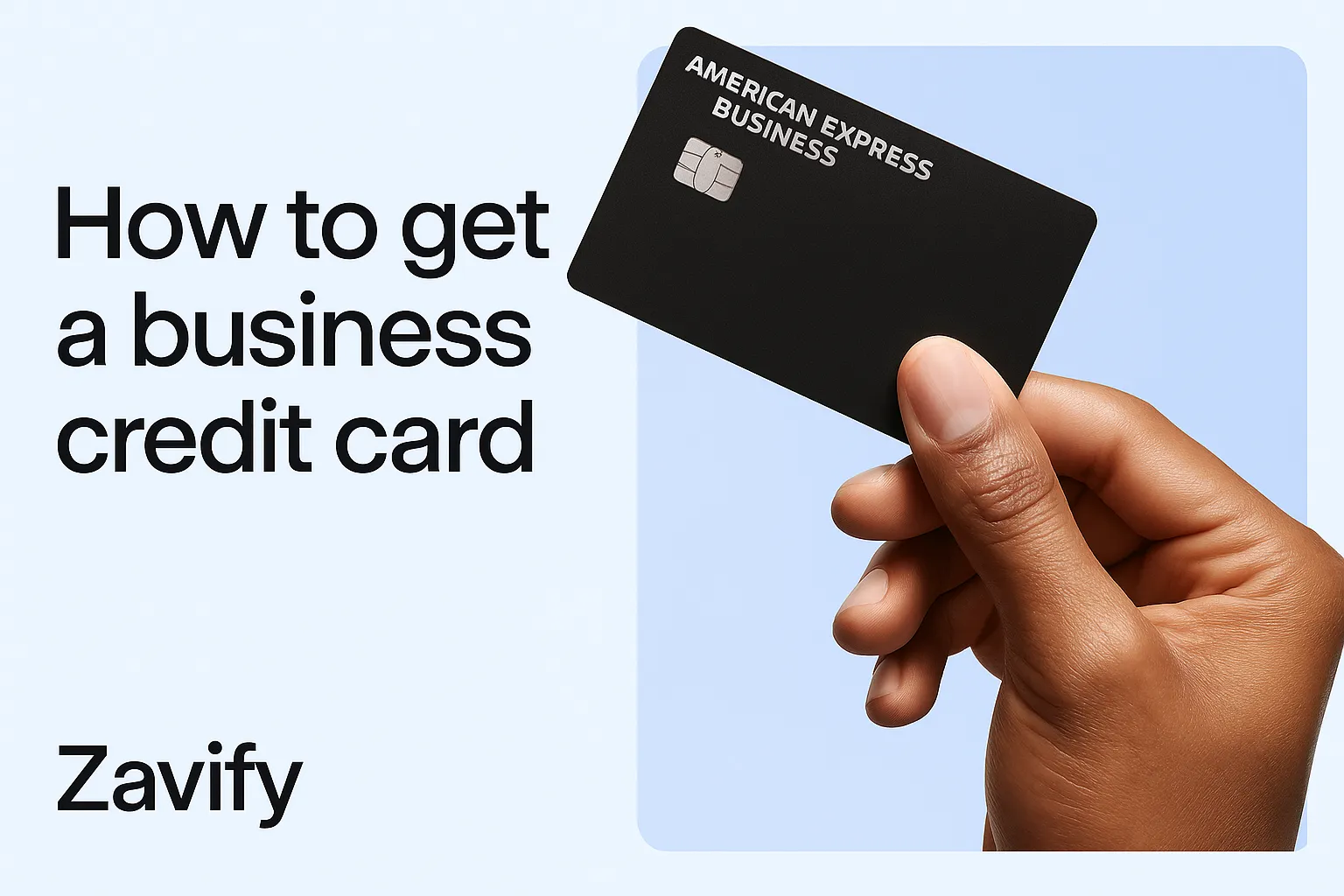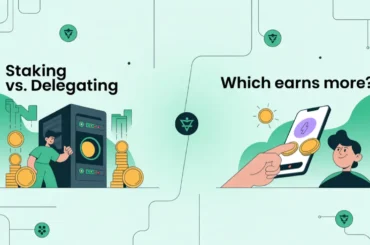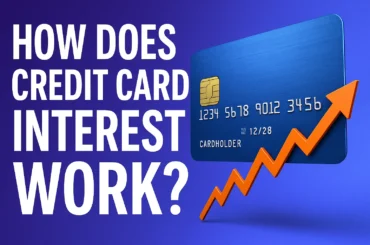Small business owners, freelancers, and entrepreneurs may find that a business credit card changes everything. Knowing how to obtain a business credit card is crucial for flexibility and financial growth, regardless of whether you’re starting a new business or running an existing one. With advice geared toward a worldwide readership, this thorough guide will take you step-by-step through the entire process, from eligibility to application.
What Is a Business Credit Card?
A financial tool created especially for business expenses is a business credit card. With the expectation of repayment within a billing cycle or over time with interest, it enables owners to borrow money up to a predetermined limit for purchases, travel, or operating expenses. Business credit cards help you keep personal and business expenses apart because they are linked to your company’s financial profile, unlike personal credit cards.
How It Differs from a Personal Credit Card
- Purpose: Designed to cover business-related costs such as travel, advertising, and office supplies.
- Credit Reporting: Helps establish business credit by frequently reporting to business credit bureaus.
- Limits and Rewards: Usually provides greater credit limits and benefits catered to business requirements (e.g., travel points or cashback on office supplies).
- Liability: You may be held personally liable for any outstanding balances, which may necessitate a personal guarantee.
Who This Guide Is For
This article is for:
- People who own new businesses or want to start a new business and need credit card for it.
- Freelancers or sole proprietors who want to keep their personal and business money separate.
- People who own small businesses in the US, UK and Canada or anywhere else in the world looking for a credit card.
Benefits of Getting a Business Credit Card
A business credit card offers numerous advantages that can streamline operations and boost financial health:
- Builds Business Credit: Getting loans or higher credit limits requires a strong business credit profile which is created through consistent use and on time payments.
- Improves Cash Flow: Pay bills when money is tight without using personal funds.
- Rewards and Perks: Get discounts on business related purchases like software or shipping, as well as cashback or travel points.
- Expense Tracking: Makes tax season easier by classifying business expenses and streamlining bookkeeping.
- Employee Cards: Provide cards to staff members with predetermined spending caps.
Business vs. Personal Credit Cards
To choose the best option, you need to know the differences between business and personal credit cards. To make things clearer here is a table of comparisons:
| Feature | Business Credit Card | Personal Credit Card |
|---|---|---|
| Purpose | Business expenses (e.g., supplies, travel) | Personal expenses (e.g., groceries, personal travel) |
| Credit Reporting | Reports to business credit bureaus (e.g., Dun & Bradstreet) | Reports to personal credit bureaus (e.g., Equifax) |
| Credit Limits | Often higher, based on business revenue | Lower, based on personal income |
| Rewards | Business-focused (e.g., office supplies, travel) | General rewards (e.g., dining, gas) |
| Liability | May require personal guarantee | Tied to individual’s credit |
| Tax Benefits | Easier to track deductible business expenses | Limited to personal tax deductions |

Business Credit Card Requirements
You must meet certain requirements to be able to get a business credit card. These differ from issuer to issuer, but they usually include:
Eligibility
- Business Type: Most cards accept LLCs, corporations, partnerships, and sole proprietorships. You can even use your own name as the business name if you are a freelancer or gig worker.
- Business Age: Some cards require a business to have been open for at least 6 to 12 months, but there are options for business credit for new businesses.
- Credit Score: Most cards require a FICO score of 600 or higher, but some will accept lower scores if certain conditions are met.
Documents Needed
The business credit card application process requires specific documents. Below is a table outlining common requirements:
| Document | Purpose | Notes |
|---|---|---|
| Business Name and EIN | Verifies business identity | Sole proprietors can use their SSN |
| Business Address | Confirms location | Can be a home address for freelancers |
| Financial Statements | Shows revenue/profit (if applicable) | Often optional for startups |
| Personal ID | Validates owner’s identity | Passport, driver’s license, etc. |
| Business License | Proves legitimacy (not always required) | Varies by issuer and region |

How to Apply for a Business Credit Card (Step-by-Step)
Here’s a clear, actionable guide to apply for a business credit card:
- Research and Compare Cards
Explore cards from major issuers like American Express, Chase, or Capital One. Look for:- Low or no annual fees
- Rewards that match your spending (e.g., travel, office supplies)
- Introductory APR offers
- Eligibility for startups or small businesses
- Check Your Credit
Examine your credit scores, both personal and business. To determine your standing, use free resources like Nav (business) or Credit Karma (personal). - Gather Documents
Gather the aforementioned documents, such as your financial records, business address, and EIN or SSN. - Submit the Application
Apply in person at a bank branch or online at the issuer’s website. Give:- Business name and type
- Revenue per year (estimated for startups)
- Personal and business contact details
- Wait for Approval
The approval process for a business credit card can take anywhere from a few minutes (instant approval) to seven to fourteen business days. Additional documents may be requested by certain issuers. - Get Your Card Activated Activate your card over the phone or online after it has been approved. To make management easier, set up online banking.
Tips to Improve Your Approval Odds
Boost your chances of business credit card approval with these strategies:
- Improve Your Credit Score: Pay off personal debts and correct errors on your credit report before applying.
- Leverage Bank Relationships: Apply with a bank where you already have a business account for faster approval.
- Show Business Revenue: Even modest revenue (e.g., $5,000/year) can strengthen your application.
- Consider a Secured Business Credit Card: If your credit is low, start with a secured business credit card, which requires a deposit but builds credit over time.
Options for New Businesses or No Credit History
Startups or businesses with no credit history have options:
- Secured Business Credit Cards: Require a refundable deposit (e.g., $500–$1,000) as your credit limit. Examples include the Wells Fargo Business Secured Card.
- Fintech Alternatives: Companies like Brex or Ramp offer cards for startups with no personal credit check, focusing on business revenue or funding.
- Business Debit Cards: Use a business debit card to establish financial discipline before applying for credit.
Below is a table comparing card types for new businesses:
| Card Type | Best For | Credit Check | Deposit Required |
|---|---|---|---|
| Secured Business Card | Poor credit or no history | Yes | Yes |
| Unsecured Business Card | Established businesses with good credit | Yes | No |
| Fintech Card | Startups with revenue but no credit history | No | No |
International Guide: Getting a Business Credit Card Globally
Requirements for business credit card applications vary by country. Here’s a brief guide:
United States
- Eligibility: Open to sole proprietors, LLCs, and corporations.
- Requirements: EIN or SSN, personal credit score (600+), proof of revenue.
- Popular Issuers: Chase, American Express or Capital One.
United Kingdom
- Eligibility: Limited companies, partnerships, and sole traders.
- Requirements: UK business address, director’s personal credit check, annual turnover proof.
- Popular Issuers: Barclays, HSBC and American Express UK.
Canada
- Eligibility: Registered businesses, including freelancers.
- Requirements: Business number (BN) or SIN, personal credit score (650+).
- Popular Issuers: TD Bank, Scotiabank, BMO.
Global Considerations
- Check local regulations for business registration.
- Some countries require a local bank account for approval.
- International cards (e.g., Visa, Mastercard) are widely accepted.
Responsible Use & Safety Tips
To maximize the benefits of a business credit card:
- Avoid Debt Traps: Pay your balance in full each month to avoid high interest rates (15–25% APR).
- Separate Spending: Use the card only for business expenses to simplify accounting.
- Set Employee Limits: Issue employee cards with spending caps to prevent misuse.
- Monitor Statements: Check for errors or fraud regularly via online banking.
- Enable Alerts: Set up transaction alerts to stay informed of activity.
Pros and Cons of Business Credit Cards
Pros
- Builds business credit for future loans or financing.
- Simplifies expense tracking for taxes and bookkeeping.
- Offers rewards tailored to business needs.
- Provides flexibility for cash flow management.
Cons
- May require a personal guarantee and risking personal credit.
- High interest rates if balances aren’t paid off.
- Annual fees on some cards can be costly.
- Potential for overspending if not managed carefully.
Key Factors for Business Credit Card Approval
Key Factors for Business Credit Card Approval
Conclusion
For small business owners, freelancers, and startups hoping to expand their finances, obtaining a business credit card is a wise decision. Benefits like rewards, credit building and improved cash flow can be unlocked by understand business credit card requirements Getting the necessary paperwork ready, and following the application process step by step. Make responsible use of the card, keep an eye on your expenditures, and select one that supports your companys objectives. Are you prepared to move forward. Investigate cards now to increase the financial potential of your company.
FAQs
Can I Get a Business Credit Card Without a Business License?
Yes, sole proprietors and freelancers can apply using their personal name and SSN (or equivalent in other countries). A formal business license is often not required.
What Credit Score Do I Need for a Business Credit Card?
Most issuers require a personal credit score of 600+ (FICO). Secured cards may accept lower scores or while premium cards often require 700+.
Do Business Credit Cards Report to Personal Credit?
If a personal guarantee is required (common for small businesses) missed payments can affect your personal credit. Some cards only report to business credit bureaus.
Can Startups With No Revenue Apply?
Yes, startups can apply by estimating revenue or using secured business credit cards. Fintech options like Brex may focus on funding or cash flow instead of revenue.










